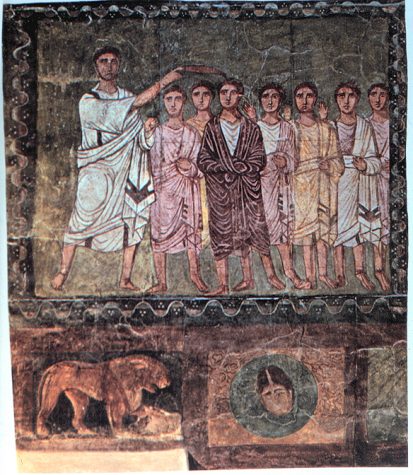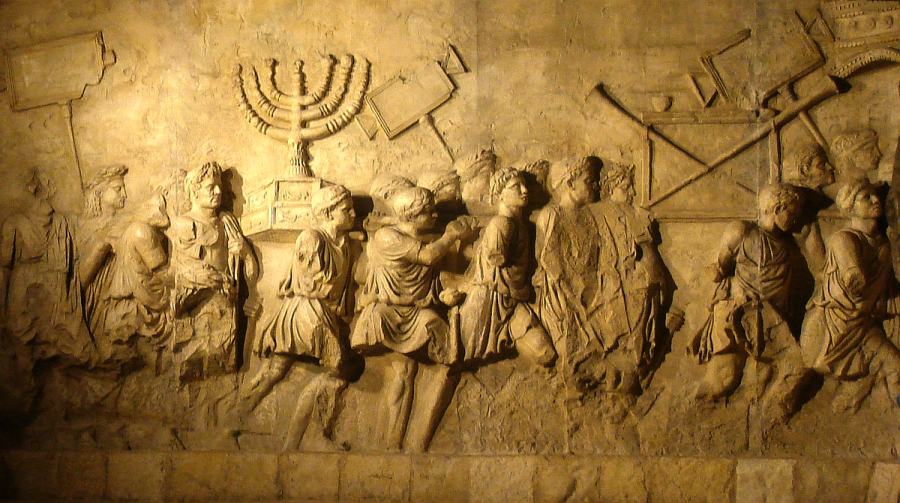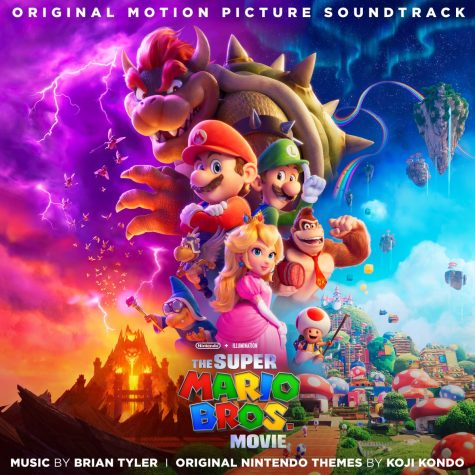Messiah: Suffering Servant or Conquering King?
Messiah — or in Hebrew משיח (Mashiach) — is a concept of all three Abrahamic faiths. Christianity, Judaism, and Islam. These religions all have different ideas about what and who the Messiah is, but is most prevalent in Christianity and Judaism. In fact, the sole difference between Christianity and Judaism is whether or not the Messiah has come. The name Christianity — or Christians — literally means “followers of Messiah.”
Christianity and Judaism both agree, more or less, on what is called the TaNaK (Torah (Law), Neviʾim (Prophets), and Ketuvim (Writings)),
So, what does the TaNaK (or Old Testament, as most call it) say about Messiah?
Well, there are HUNDREDS of verses, but these are just the most widely accepted — on both sides — to be messianic.
The Messiah would be a descendant of King David (Samuel 7:12, Psalm 72, Isaiah 11:1, Jeremiah 23:5-7, Jeremiah 33:14-23, Isaiah 9:6-7)
He will be like high priest Melchizedek (Psalm 110:4),
A Servant of the Lord, who will be a light to the nations (Isaiah 42),
One will come before him to make his path clear (Isaiah 40:3-5),
He will come to those as a redeemer and turn them from transgression (Isaiah 50:20),
The “Spirit of the Lord” is upon him (Isaiah 61:1),
He will come to announce good news to the poor and disenfranchised (Isaiah 61:7),
Will be born in Bethlehem (Micah 5:2),
Will shepherd his flock (Micah 5:4),
He’ll ride into Jerusalem on a donkey (Zechariah 9:9),
He’ll come in judgment, riding on the clouds of Heaven (Daniel 7:13),
Will bring peace to the world (Isaiah 11:6)
And be a prophet like Moses (Deuteronomy)
The first major disagreement happens here, and an integral one at that. That disagreement is on how to categorize Isaiah 53.
Isaiah 53 is often referred to as “The suffering Servant” passage because it speaks of one who endured great suffering.
The Prophet Isaiah reveals from God, “Who has believed our report? And to whom has the arm of the Lord been revealed?”
“For He grew up before Him like a tender shoot, And like a root out of dry ground; He has no stately form or majesty That we would look at Him, Nor an appearance that we would take pleasure in Him.” Isaiah continues describing his revelation.
“He was despised and abandoned by men, A man of great pain and familiar with sickness; And like one from whom people hide their faces. He was despised, and we had no regard for Him. However, it was our sicknesses that He Himself bore, And our pains that He carried; Yet we ourselves assumed that He had been afflicted, Struck down by God, and humiliated.
But He was pierced for our offenses, He was crushed for our wrongdoings; The punishment for our well-being was laid upon Him, And by His wounds we are healed. All of us, like sheep, have gone astray, Each of us has turned to his own way; But the Lord has caused the wrongdoing of us all To fall on Him.
He was oppressed and afflicted, Yet He did not open His mouth; Like a lamb that is led to slaughter, And like a sheep that is silent before its shearers. So He did not open His mouth. By oppression and judgment He was taken away; And as for His generation, who considered That He was cut off from the land of the living For the wrongdoing of my people, to whom the blow was due? And His grave was assigned with wicked men, Yet He was with a rich man in His death, Because He had done no violence, Nor was there any deceit in His mouth. But the Lord desired To crush Him, causing Him grief;
If He renders Himself as a guilt offering, He will see His offspring, He will prolong His days, And the good pleasure of the Lord will prosper in His hand. As a result of the anguish of His soul, He will see it and be satisfied; By His knowledge the Righteous One, My Servant, will justify the many, For He will bear their wrongdoings. Therefore, I will allot Him a portion with the great, And He will divide the plunder with the strong, Because He poured out His life unto death, And was counted with wrongdoers; Yet He Himself bore the sin of many, And interceded for the wrongdoers.”
Now, on its face, who else could the passage be about, other than the Messiah? This Servant is said to be completely sinless, “doing no violence” and having “no deceit in his mouth.” The passage is often used by Christian missionaries and evangelists to show the great passion and suffering of the Messiah, the same passion and suffering found in Jesus.
The passage speaks of a Servant who bears the transgression of the world by being “cut off from the land of the living” by his own people (the Jews). He was thought to be a criminal and was despised, yet there was no wrong he had done. He was buried in the grave of a rich man.
Though that is not the end of this Servant.
Though he died, pouring out his life unto death, this Servant prolongs his days. The Servant lived to see offspring (the term used in the Hebrew is “seed,” with no indication that the seed is his).
But is it really about the Messiah?
In a commentary by 11th century Rabbi, Rashi, he argues that this passage is not about Messiah, but about Israel.
Rashi writes, “So is the custom of this prophet: he mentions all Israel as one man, e.g., (44:2), ‘Fear not, My Servant Jacob.’”
So how, then, could the passage be about Messiah if Isaiah calls Israel “Servant?”
Take note that Isaiah also calls King David “Servant of the Lord.” Isaiah is even called “my Servant Isaiah” in Isaiah 20:3. Is the Servant Israel and Isaiah and David? Surely not.
In the passage, you’ll recall that the Servant is described as doing “no violence,” and having “no deceit in his mouth.” How could this — especially in Isaiah — apply to Israel?
Israel is described as a “sinful nation, a people laden with iniquity, a seed of evildoers, children that are corrupters: they have forsaken the Lord,” in Isaiah 1:4. Evidently, this does not meet the description of the Servant of Isaiah 53.
Alongside this, many Jewish scholars and Jewish websites list Isaiah 42 as a messianic passage, such as Dr. Roni Kedmi and Jewfaq.org, but not Isaiah 53. If the Servant in Isaiah 42 is not Israel, then neither is the Servant in Isaiah 53.
The other criticism levied against the passage possibly relating to Messiah is that it’s in past tense, describing an event that already happened.
Firstly, this ignores the fact that this is described in past and future tense at different times, and Isaiah is just describing what God revealed to him. Secondly, there isn’t an event like that happened in the entire Hebrew Bible, where a man died a gruesome death after being accused of crimes he didn’t commit and rose again from the dead. And even if this did happen before (which it so obviously did not), another sacrifice wouldn’t be needed, as it was said this man bore the sins of the world, and he wouldn’t be promising it again.
This is how the verse has been viewed unanimously by Jews before about the 10th century.
Perhaps most pertinent to Jews is what the Babylonian Talmud says in relation to this passage, as they see the Talmud as authoritative.
“The Messiah—what is his name?… The Rabbis say, the leprous one; those of the house of Rabbi say, the sick one, as it is said, ‘Surely he hath borne our sicknesses (Sanhedrin 98b).’”
The quoted portion “‘Surely he hath borne our sickness’” is a direct reference from Isaiah 53:4.
Midrash Rabbah agrees with the Talmud, saying, ”He is speaking of the King Messiah: ‘Come hither’ draw near to the throne ‘and dip thy morsel in the vinegar,’ this refers to the chastisements, as it is said, ‘But he was wounded for our transgressions, bruised for our iniquities.’”
Even some rabbi’s after the 11th century still recognize the messianic connotation of the passage.
Moshe Kohen, a 15th-century rabbi in Spain, critiques the then common explanation for Isaiah 53.
”This passage, the commentators explain, speaks of the captivity of Israel, although the singular number is used in it throughout. Others have supposed it to mean the just in this present world, who are crushed and oppressed now,” he writes. He argues that the rabbis “distort the verses from their natural meaning.”
“Having forsaken the knowledge of our Teachers, and inclined ‘after the stubbornness of their own hearts,’ and of their own opinion, I am pleased to interpret it, in accordance with the teaching of our Rabbis, of the King Messiah.”
Though the unanimous Jewish testimony up until the middle ages shows that this passage is about Messiah, such is not the case anymore.
With no hesitation, you can say this verse is about the Messiah. Because it is.
Now that we have a sufficient pool of verses to pull our idea of Messiah from, another question needs to be asked.
There’s only one Messiah.. right?
The question sounds absurd. Of course, there’s only one Messiah.
But ancient (and even some contemporary) rabbis argued that there were actually two Messiahs. How could this be?
You might’ve noticed that there are contradictions in how Messiah is describe
d in the bible.
It was said that he would be a great ruler and a man of great sorrows. He would reign on all the earth forever, and yet die as a sin-offering, and lead a humble and un-majestic life. This is where ancient rabbis came up with the idea of Mashiach Ben David and Mashiach ben Yoseph.
Messiah son of David would reign as king, while Messiah son of Joseph would come to suffer. It is important for contemporary Jews and Rabbis to recognize that a suffering Messiah is not a Christian invention.
However, there is no support for there being two anointed ones in scripture. It always says that there will be one. One like unto Moses (Deuteronomy 18:15), One from among you (Micah 5:2), etc.
However, this interpretation does get a few things right.
Namely, there are different roles that the Messiah will play.
Other ancient Jewish interpretations still have trouble ironing out the contradicting descriptions of the Messiah.
One section from the Talmud states that it is up to the people of Israel to determine how the Messiah will come.
“If the people of Israel will be righteous, the Messiah will come in the clouds of Heaven. If they will not be righteous, he will come as a poor man riding upon an ass (Sanhedrin 98a),” writes the Rabbis.
This too has a glaring problem.
Never in reference to the Messiah does scripture say that his arrival will be based upon the Jewish people. It always says that he is coming.
The closest the TaNaK gets to saying something like this is in *Deuteronomy* where it is said that Israel determines whether or not it is brought out of captivity.
Deuteronomy 30:2-3 reads, “When you and your children return to the Lord your God and obey him with all your heart and with all your soul according to everything I command you today, then the Lord your God will restore your fortunes and have compassion on you and gather you again from all the nations where he scattered you.”
This verse can possibly refer to Israel’s fate as a whole, but says nothing about Messiah.
So what do we make of these contradictions? Was the Messiah to come lowly on an ass, or in Judgement on the clouds as in Daniel 7?
Well, the Christian interpretation is that this Messiah came first to suffer and redeem creation, and will come again at the end of time to rule forever. So Jews and Christians do both look forward to the arrival of the Messiah. As Ravi Zacharias put it in an interview with Ben Shapiro, ”Truly, when Messiah comes, we will have one question. ‘Have you been here before?’”
However, the difference is not so menial. In fact, it’s crucial.
Contemporary Jews completely ignore the fact that scripture necessitates that Messiah must suffer, be humiliated, and die a torturous death — and rise from the dead.
If Isaiah 53 is Messianic, then Messiah must live after death.

In the Jewish Virtual Library’s summary of the Jewish Messiah, “He will be
a descendant of King David, gain sovereignty over the land of Israel, gather the Jews there from the four corners of the earth, restore them to full observance of Torah law, and, as a grand finale, bring peace to the whole world.”
Nowhere in the JVL’s description of Messiah do we find the very important detail of the Messiah’s suffering.
Another thing that Jews and Christians fervently disagree upon is whether the Messiah would be God.
In Micah 5:2, the same passage which says the Messiah would be born in Bethlehem, also says the ruler who was to come would be from the “times of eternity,” or “ancient days.”
This implies the Messiah is beginningless. A previous, ancient, time of eternity, means inherently no beginning. Interestingly, God is also called “the ancient of days” in Daniel 7, and in Psalm 90, it says God is “from forever in the past to forever in the future.” If Micah was right in his revelation, then the Messiah shares in God’s eternity, past and future.
The TaNaK also implies the deity of The Messiah in Zechariah, a prophet from the 6th century BC, said that “His (Messiah’s) dominion will be from sea to sea, And from the River to the ends of the earth.”
Psalm 47 says that God is “The Great King over all the earth,” not Messiah.
If God says that the Messiah is King over all the earth, and God is King over all the earth, there’s a contradiction here.
But God Himself in a revelation to the Prophet Isaiah proclaimed that He “will not give [His] Glory to another.”
If God is unwilling to share his glory, they must, somehow, be one in the same.
This trend is continued in Daniel 7, where “one like a son of man,” or a human, is given eternal “glory and a kingdom.” All the nations were to serve this one human. This passage brings about the same question as the previous passage and has the same answer.
Yet this passage is more clear about this human who all of mankind serves and glorifies. In other passages, it says that Messiah will have dominion over all the earth, but this chapter very transparently demonstrates that the Messiah is divine.



